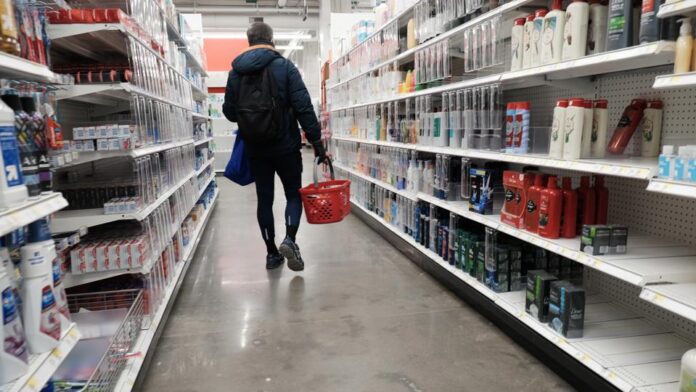Editorial Note: We earn a commission from partner links on Forbes Advisor. Commissions do not affect our editors’ opinions or evaluations.
As inflation continues to rise, Americans are worried about its effect on their daily lives.
Nearly two-thirds of respondents of the latest Forbes Advisor-Ipsos Consumer Confidence Biweekly Tracker expect the rate of inflation to increase, with 31% expecting it to stay the same.
The survey, conducted by Ipsos, measures consumer sentiment over time.
Meanwhile, 50% of people expect their monthly bills and other regular expenses to increase, while 45% expect them to stay about the same.
Prices in December were 7% higher than they were in December 2020, the highest inflation since the 1980s. Meat, poultry, fish and eggs have increased by 12.5% in the past year, while furniture prices are up almost 14%. Renting cost 3.3% more in December than in late 2020.
Though the Federal Reserve has a plan to slow inflation in 2022, it can’t control much of the supply chain issues that are a significant factor driving prices upward.
Read more: Inflation Went Up By 7% Year Over Year. Here’s What’s More Expensive
But while prices are expected to rise, only 23% expect their household income to increase, and two-thirds of respondents expect their income to stay the same.
Jobs Confidence May Offer Clues to Enduring Inflation
A strong job market may be an element contributing to some consumers’ confidence regarding their standard of living.
The jobs index is the highest of the aspects of financial confidence Ipsos measures, sitting at 66.7 this week- less than a point lower than a month ago. In mid-January 2021, the jobs index was 57.9.
Fifty-four percent said that they’re more confident about job security for themselves, family members and friends than six months ago (a decrease of two percentage points from a month ago).
December’s unemployment rate was 3.9%, just a hair above the 3.5% rate in February 2020. And though the quits rate is still high—more than 4.5 million people left their jobs in November—this level of the so-called great resignation doesn’t mean millions of people have abandoned the idea of work altogether. Rather, they’re moving to new opportunities: nearly 6.7 million people got hired in November.
Read more: Need A Career Change? How to Make The Great Resignation Work For You
Prior to the pandemic, fewer than 6 million people were hired in the average month.
Navigating that competitive job market in which the employee still seems to be in control may be one option for weathering the long wave of inflation.
Data from job-search platform Joblist found that more than half of job seekers who got a raise at their current job got an increase of 5% or less—two percentage points below the current inflation rate. That same survey found that 79% of employed job seekers believe they can earn more by switching to a new job.
Survey methodology: Ipsos, which surveyed 908 respondents online on Jan. 11 and 12, provided the results exclusively to Forbes Advisor. The survey is conducted biweekly to track consumer sentiment over time, using a series of 11 questions to determine whether consumers feel positively or negatively about the current state of the economy and where it looks to be going in the future.
Credit: Source link










